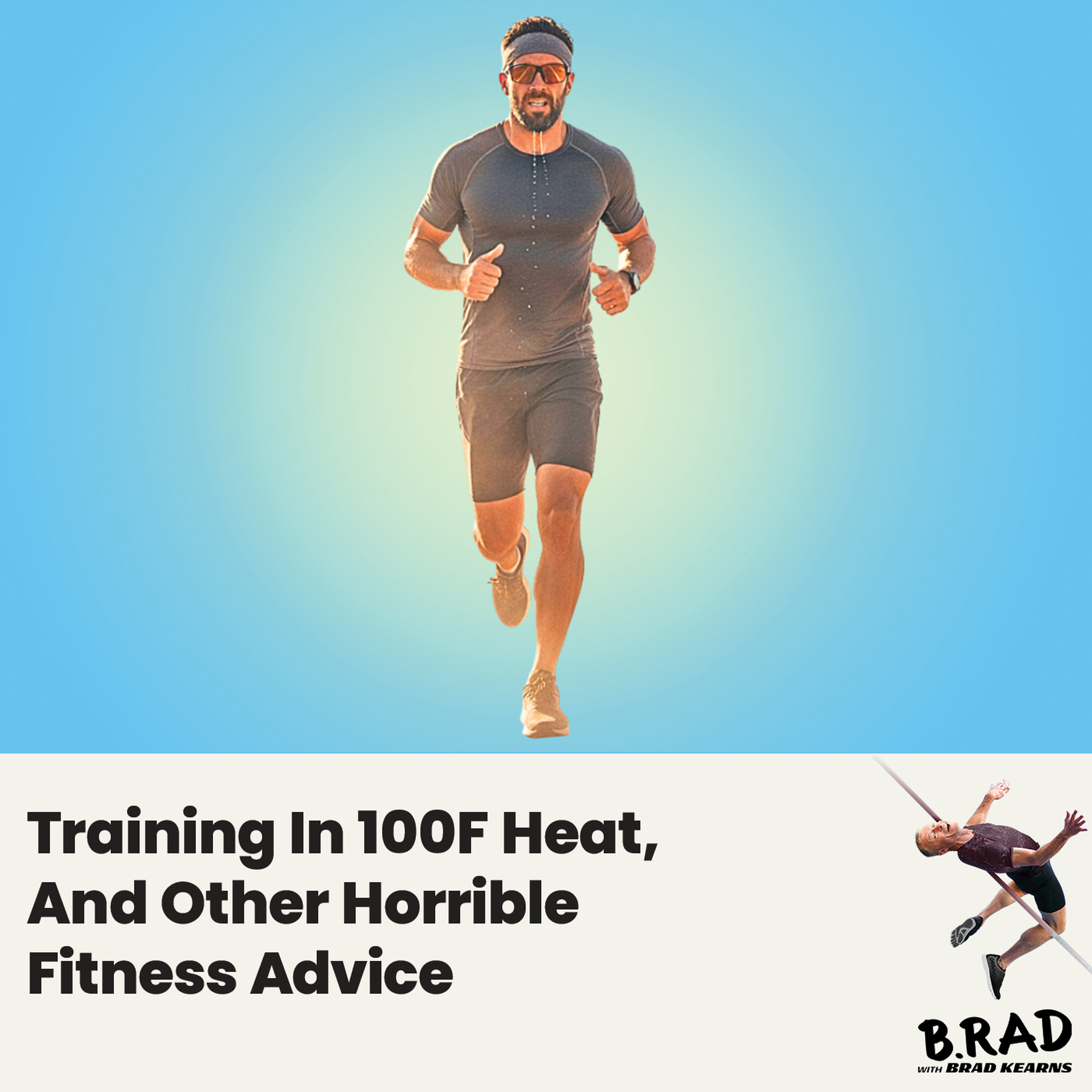Podcast Episode Details
Back to Podcast Episodes
Training In 100F Heat, And Other Horrible Fitness Advice
In this episode, I call out some dangerous and misguided fitness advice floating around on social media—like a post from a PhD in exercise physiology suggesting that everyone should go run for 45 minutes in 100-degree heat to boost their VO₂ max.
Sure, the science on heat training is interesting and real, but context matters. For elite athletes training for world championships, carefully managed heat exposure can make sense. For the other 99.9% of people, it’s a fast track to burnout, breakdown, or even the ER.
I break down the difference between training stress that builds fitness versus stress that destroys it, explain how to recognize the signs of overtraining, and share why fatigue is feedback, not weakness. I also revisit my critique of Layne Norton’s “push through it no matter what” philosophy and contrast that with what smart athletes actually do—monitor recovery, track readiness, and adjust daily.
To wrap up, I share lessons from my own mistakes, insights from coach Cynthia Monteleone, and why true recovery days sometimes mean actually resting.
TIMESTAMPS:
Brad takes issue with the recommendation that people exercise in 100 degree heat. [01:10]
If you are talking about competitive athletes, rather than the general population, that would be different. [03:30]
Running is too stressful for the vast majority of participants. [06:37]
The main two reasons for poor performance and workouts are one, over training and two, de-training. [10:27]
You are literally training the body to get slower, weaker and less efficient with poor technique when you train and push your body through signs of poor movement patterns. Fatigue is feedback, not weakness. [12:10]
If you don't feel like working out one day, that is a signal from the control center, your brain. [17:57]
There is a huge distinction between endurance athletes where they always have that obligation to keep that aerobic system going with low intensity recovery days versus a true recovery day for a high intensity power athlete which entails sitting around and resting. [21:41]
LINKS:
- Brad Kearns.com
- BradNutrition.com
- B.rad Superdrink – Hydrates 28% Faster than Water—Creatine-Charged Hydration for Next-Level Power, Focus, and Recovery
- B.rad Whey Protein Superfuel - The Best Protein on The Planet!
- Brad’s Shopping Page
- BornToWalkBook.com
- B.rad Podcast – All Episodes
- Peluva Five-Toe Minimalist Shoes
We appreciate all feedback, and questions for Q&A shows, emailed to podcast@bradventures.com. If you have a moment, please share an episode you like with a quick text message, or leave a review on your podcast app. Thank you!
Check out each of these companies because they are absolutely awesome or they wouldn’t occupy this revered space. Seriously, I won’t promote anything that I don't absolutely love and use in daily life:
-
B.rad Nutrition: Premium quality, all-natural supplements for peak performance, recovery, and longevity; including the world's highest quality whey protein!